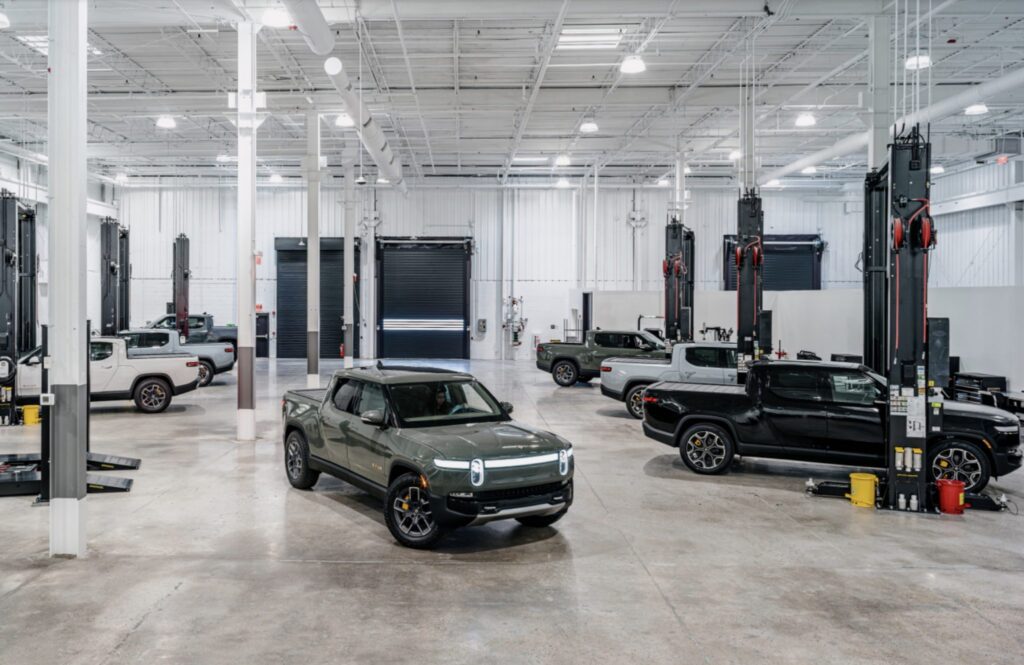In a surprising development, Rivian, the electric vehicle (EV) manufacturer, is making strategic decisions at its Normal, Illinois factory. Reports reveal that Rivian is laying off about 20 workers from its in-house battery development team, including the head of cell engineering, Victor Prajapati.


Victor Prajapati’s Departure: A Shift in Strategy
Victor Prajapati, renowned for his role at Tesla and hired by Rivian in 2020, expressed gratitude on LinkedIn for his three-year journey with Rivian. Despite the layoffs, Prajapati remains optimistic about the company’s future success and hints at his next steps in contributing to sustainability.
Rivian’s Partnership with Samsung and Future Plans
Despite the layoffs affecting its in-house battery development plans, Rivian remains committed to its collaboration with Korean battery supplier Samsung. This alliance is set to continue, even as internal development initiatives face a temporary pause.
Rivian’s Commitment to EV Lineup Development
In response to inquiries about the layoffs, a Rivian spokesperson clarified that the company is unwavering in advancing its electric vehicle lineup. The focus is on unveiling the next generation of electric vehicles in the upcoming year, with deliveries slated for 2026. This signals a shift in focus from internal battery development to the broader goal of expanding its electric vehicle portfolio.
Production Facilities and Georgia Plant Approval
Presently, Rivian manufactures the R1T electric pickup and the R1S electric SUV at its Illinois facility. The recent workforce reduction raises questions about the company’s future innovation and its potential impact on production capabilities. Interestingly, this news follows Rivian’s approval to construct a $5 million plant in Georgia, earmarked for the production of its second-generation R2 line.
Conclusion
Rivian’s decision to scale back its in-house battery development unit, leading to the departure of key personnel like Victor Prajapati, reflects the dynamic nature of the electric vehicle industry. While setbacks in internal projects are not uncommon, the company appears resilient, emphasizing its commitment to collaboration with established partners like Samsung. As Rivian navigates this transitional phase, all eyes will be on its forthcoming electric vehicle lineup, set to redefine its position in the competitive EV market.
ALSO READ :-
Volkswagen Introduces Amazing Feature Bidirectional Charging in ID. Family Models
Tesla Cybertruck Outshines Ford F-150 Raptor R on Pavement in Unconventional Drag Race
SOURCE : TESLARATI
FAQs
How does this development affect Rivian’s production facilities?
The layoffs raise questions about the company’s future production capabilities, and stakeholders will be keen to see how Rivian manages this transitional phase while maintaining its commitment to innovation.
What prompted the recent layoffs in the battery development team, and how does it align with the company’s long-term strategy?
The decision to reduce the workforce in the battery development unit was driven by a strategic realignment to optimize operations. By focusing on external collaborations, the company aims to enhance efficiency and ensure a more streamlined approach to future projects in the evolving electric vehicle sector.
How will the departure of key personnel, such as Victor Prajapati, impact the company’s internal capabilities and partnerships with battery suppliers?
While notable figures like Victor Prajapati are leaving, the company is steadfast in its commitment to existing partnerships, particularly with battery suppliers. The strategic shift is carefully managed to ensure that key initiatives, including the development of the next generation of electric vehicles, proceed without significant disruption.
What assurances does the company provide regarding its future innovation and production capabilities in light of these workforce changes?
The company remains proactive in addressing concerns about the impact of workforce reductions on innovation and production. By emphasizing its commitment to an upcoming electric vehicle lineup and gaining approval for a new manufacturing plant, the company signals resilience and a strategic focus on sustained growth in the competitive electric vehicle market.
